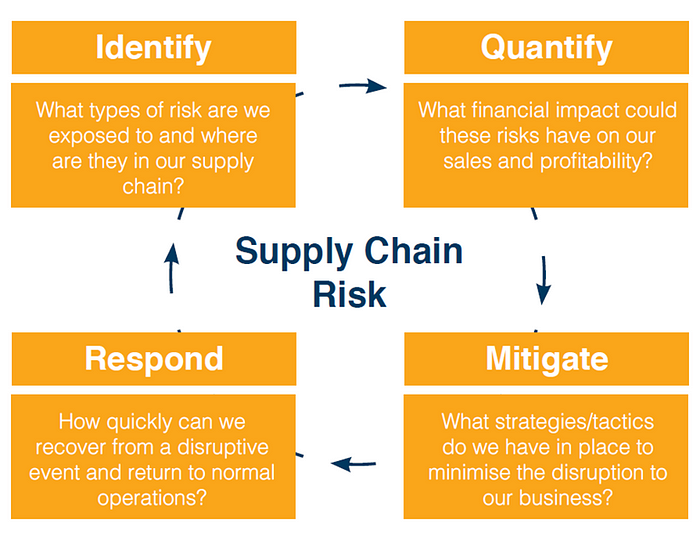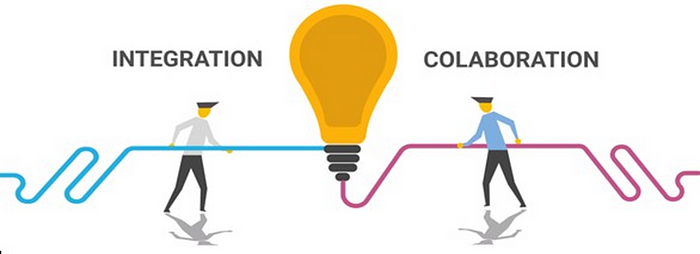
SUPPLY CHAIN: A TRANSFORMATIVE FIELD REVOLUTIONIZING BUSINESS OPERATIONS
In today's fast-paced business environment, the significance of a well-managed and efficient supply chain is paramount. The supply chain serves as the backbone of any organization, encompassing all processes and activities involved in delivering products or services to customers. As businesses seek to enhance competitiveness and cost-efficiency, supply chain management has become a crucial and evolving field, essential for thriving in a globalized economy. In this blog post, we will examine the role of supply chain management in shaping business success worldwide.
THE IMPACT OF GLOBALIZATION:
Globalization has revolutionized business operations, bringing both opportunities and challenges. Organizations now have access to larger markets and a broader range of suppliers but also face increased competition and complexity. Supply chain management has become vital for navigating these challenges and leveraging the advantages of globalization. Effective supply chain strategies allow companies to optimize operations, streamline processes, and expand into new markets.

TECHNOLOGY-DRIVEN INNOVATIONS:

Technological advancements have transformed supply chain management. From sophisticated software systems to automation and artificial intelligence, technology has significantly improved supply chain efficiency and effectiveness. Innovations such as blockchain, the Internet of Things (IoT), and data analytics are revolutionizing how organizations track, manage, and optimize their supply chains. By utilizing these tools, companies can gain real-time visibility, identify bottlenecks, mitigate risks, and make data-driven decisions to enhance overall performance.
SUSTAINABILITY AND ETHICAL PRACTICES:

Sustainability and ethical practices have become increasingly important in business. Consumers and stakeholders demand transparency and responsibility throughout the supply chain. Organizations are expected to adopt sustainable practices, reduce environmental impact, and ensure fair labor conditions. Supply chain professionals play a crucial role in designing and implementing sustainable strategies, assessing environmental impacts, optimizing transportation, embracing circular economy principles, and engaging in responsible sourcing. Integrating sustainability into the supply chain benefits the environment and enhances brand reputation and customer loyalty.
SUPPLY CHAIN RISK MANAGEMENT:

Risk management is now a fundamental aspect of effective supply chain management. Disruptions such as natural disasters, political unrest, or global pandemics can severely impact the flow of goods and services. Supply chain professionals must develop resilient supply chains that quickly adapt to unforeseen events and minimize disruptions. This involves building redundancy, diversifying suppliers and markets, implementing contingency plans, and using data analytics to proactively identify and mitigate risks. Effective risk management ensures business continuity and safeguards operations.
COLLABORATION AND INTEGRATION:

Supply chain management extends beyond individual organizations to collaborative efforts with suppliers, partners, and stakeholders. Collaboration and integration across the supply chain ecosystem yield substantial benefits, including cost savings, improved efficiency, and enhanced customer satisfaction. Supply chain professionals must foster strong supplier relationships, develop strategic partnerships, and use visibility tools to facilitate seamless information sharing and coordination. Collaborative efforts create a synchronized and agile supply chain, driving business success.
CONCLUSION:
In the ever-changing global business landscape, supply chain management is a vital discipline. Effective supply chain management helps businesses navigate globalization, leverage technological innovations, adopt sustainable practices, manage risks, and foster collaboration. As supply chain professionals adapt and embrace emerging trends, the field will play an increasingly critical role in organizational success. By staying ahead of the curve and capitalizing on evolving supply chain opportunities, businesses can gain a competitive edge and drive sustainable growth in the future.
Post a comment